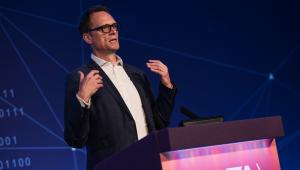The poll of leaders from across local government, the NHS, police and further and higher education found a majority – 89% – agreed that their organisation was pursuing digital services to cut costs.
However just 32% said funding for the shift to digital within their organisations has increased, and 28% felt have the right level of resources.
The Cabinet Office has a cross-government Digital strategy, which is intended to move than 650 government transactions online to cut administration costs. Changes to allow people to apply for the Universal Credit benefit online, as well as to pay car tax and apply for a passport, are intended to reduce the current central government running costs of between £6bn and £9bn a year.
In addition, CIPFA and a host of other local government bodies are working with Whitehall on proposals to make local services in England more digitally enabled.
However, only a quarter of those polled by Deloitte said their organisation had sufficient skills within the organisation to execute their digital plans, and only a third rated their organisation as well placed to respond to digital trends.
Also, only 12% felt their organisations were involving and consulting citizens in the design of new services online. This is despite 86% agreeing that such an approach was essential to the success of digitisation projects.
Joel Bellman, Deloitte’s public sector digital partner, said there was a great deal to gain from digital public services both in terms of efficiency and money saved. But there was “a disconnect” between those designing digital public service and those that will use them revealed by the survey, he stated.
“The technology is there for the public sector to take advantage, yet they lack the culture, skills, governance and leadership to do so. The public sector needs to ramp up its digital skills, just one quarter saying they have the right skills in place is not a good omen.
“Funding is clearly going to be difficult in an age of austerity but digital is a route to long-term savings.”




















